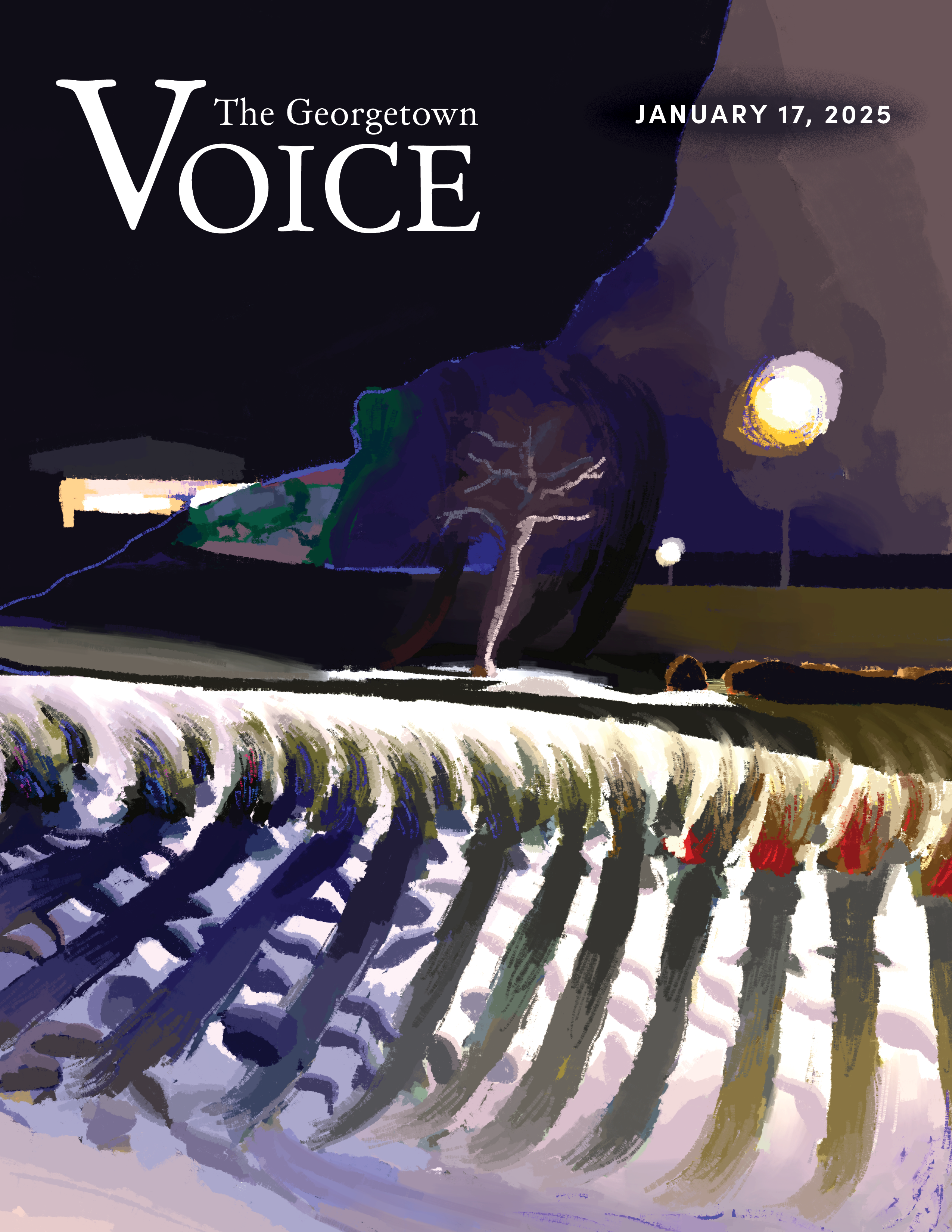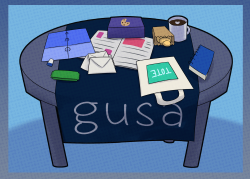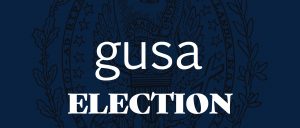A referendum on two amendments to the GUSA Constitution failed because while the majority of votes cast were in favor, the total number of votes in favor did not exceed the required threshold of 25 percent of the student body. According to the GUSA Election Commission’s official Twitter account, turnout for the April 25-27 voting period was 23 percent.
Ben Baldwin (SFS ‘19), one of the GUSA Senators who introduced the referendum, wrote in an email to the Voice that the low turnout was not what he had hoped for. “It’s disappointing to see a referendum fail from a lack of turnout. Even though I wanted to see these reforms pass, I understand that others view the future of GUSA differently and voted their conscience,” Baldwin wrote.
The first of the two questions proposed a restructuring of the GUSA Senate to representation based on class year rather than geographic districts. The second proposed expanded language for the student protections included in the GUSA Constitution to accommodate more diversity.
The results of the restructuring question were 86 percent in favor and 12 percent not in favor, but the amount of votes in favor did not cross the required threshold of 25 percent of the student body.
Baldwin said that the current organization of the senate based on geographic districts does not result in senators being elected that best represent their constituents. “It seems kind of silly to continue to use a system where we’re lumped into these geographic districts that are not representative of our identity beyond freshman year,” Baldwin said.
Despite the referendum failing, Baldwin still feels that the senate needs to change. “Nevertheless, I still believe that the Senate needs to be restructured in a way that better represents the student body so that it can advocate more effectively for the student interests on this campus,” he wrote.
The results of the second question on changing the language of student protections in the GUSA Constitution were 93 percent in favor and 7 percent not in favor but like the first question, votes in favor failed to reach the threshold of 25 percent of the undergraduate body.
The proposed changes included adding citizenship, gender identity or expression, and all other characteristics protected by federal or district laws. It also proposed replacing the term “physical handicap” with ability or disability.
According to the GUSA website, these protections are already included in the student code of conduct, and that the question had been proposed as a means of updating the language of the GUSA Constitution.
Baldwin was surprised that students would vote against changing the language of the constitution to include these groups and cover all students on campus. “I find it shocking that 113 students would vote against extending non-discrimination protections in the GUSA Constitution,” Baldwin wrote.
Scott Lowder (COL ‘17), the other senator to propose the referendum, said that he had been surprised by how long it had been since the language of the constitution had been updated regarding these protected groups. “When we were going through the constitution I was surprised that some of these characteristics and some of this language hadn’t been updated since its introduction in the mid-1990s,” Lowder said.
This was the second time that the restructuring question had appeared on a ballot, after a Dec 1, 2016 referendum also proposing restructuring of the GUSA Senate was deemed in violation of the GUSA Constitution. The content of the referendum had not been released to the undergraduates body at least two weeks before the date of the voting, leading the GUSA Constitutional Council to invalidate the results in January.





